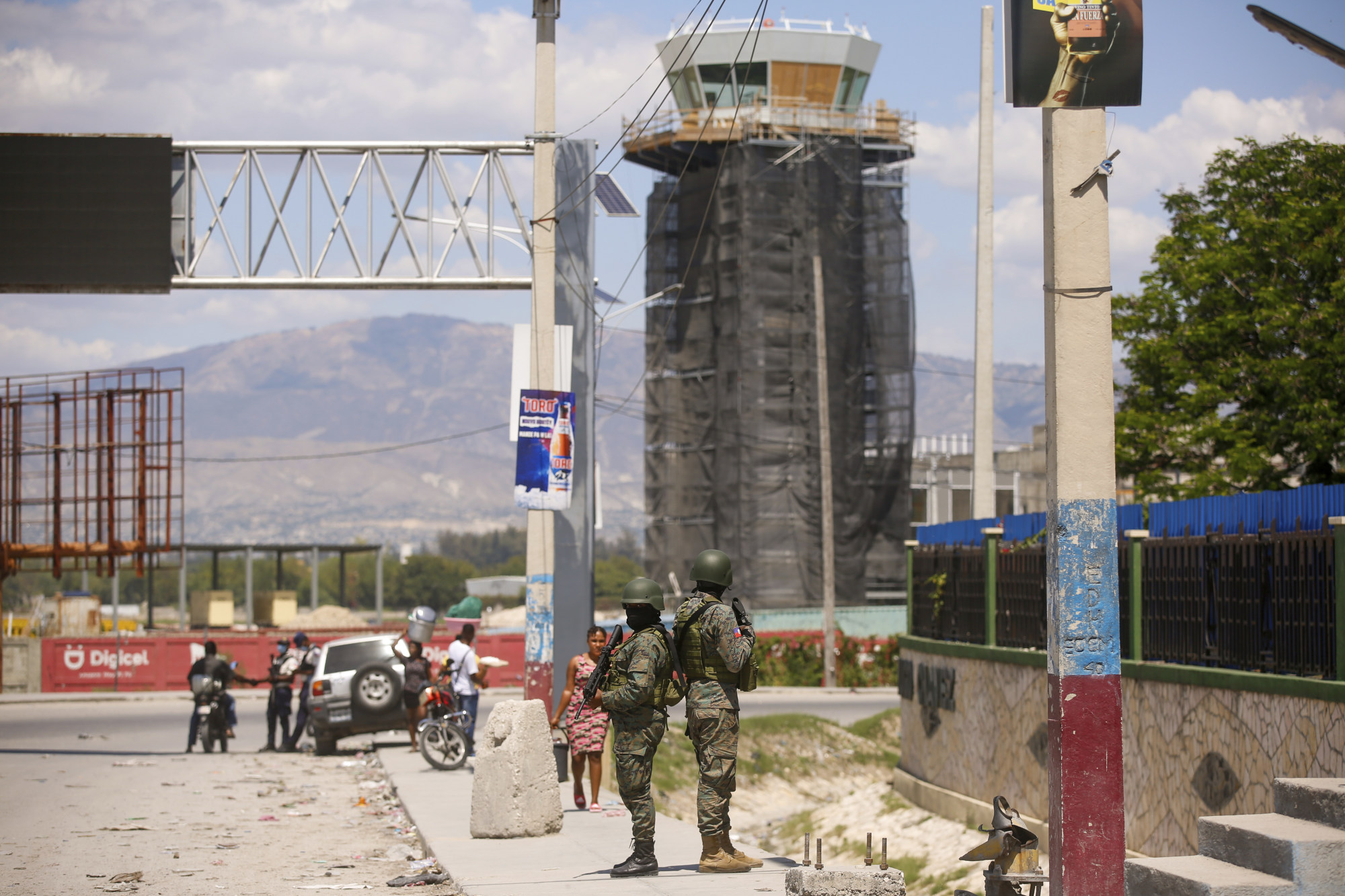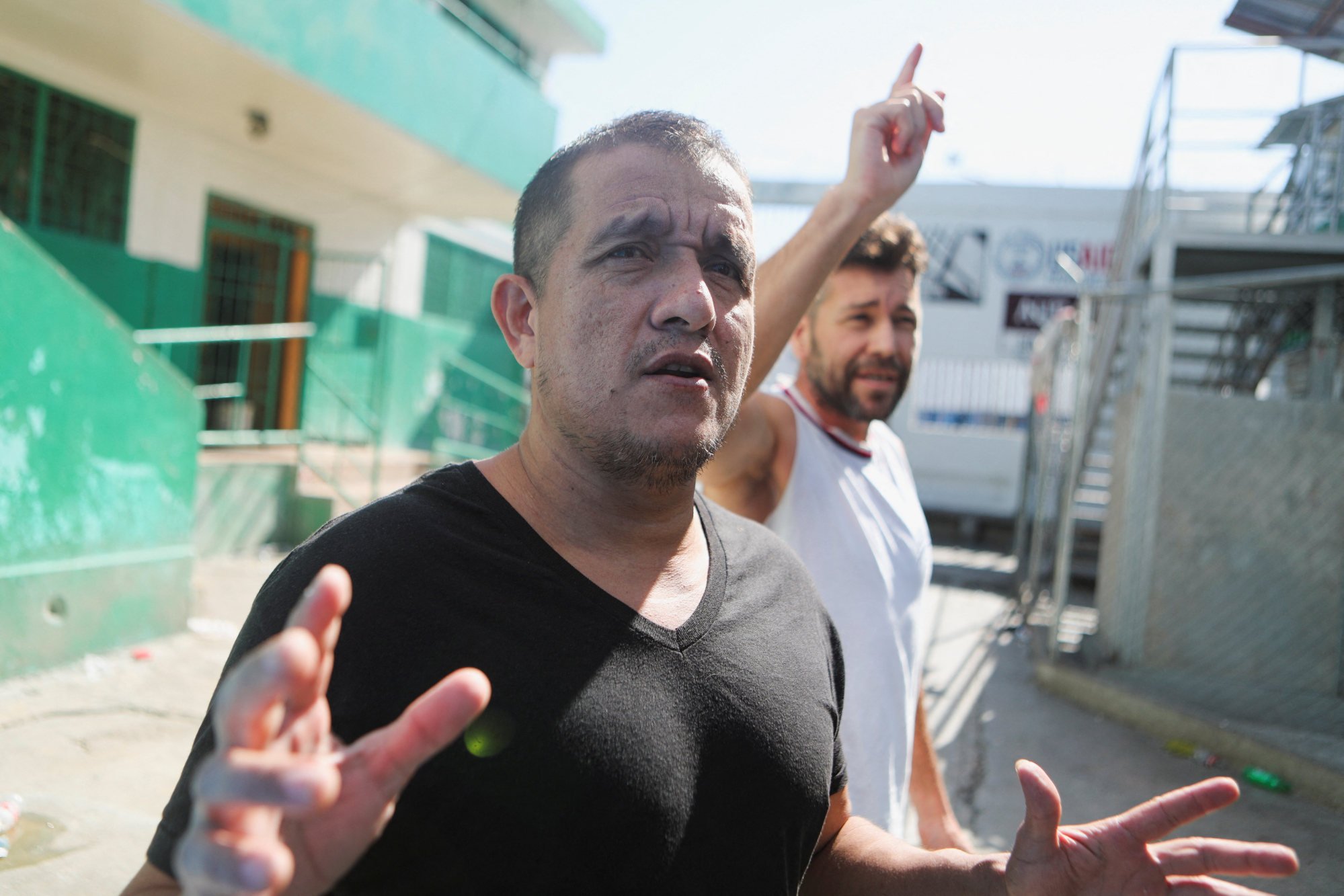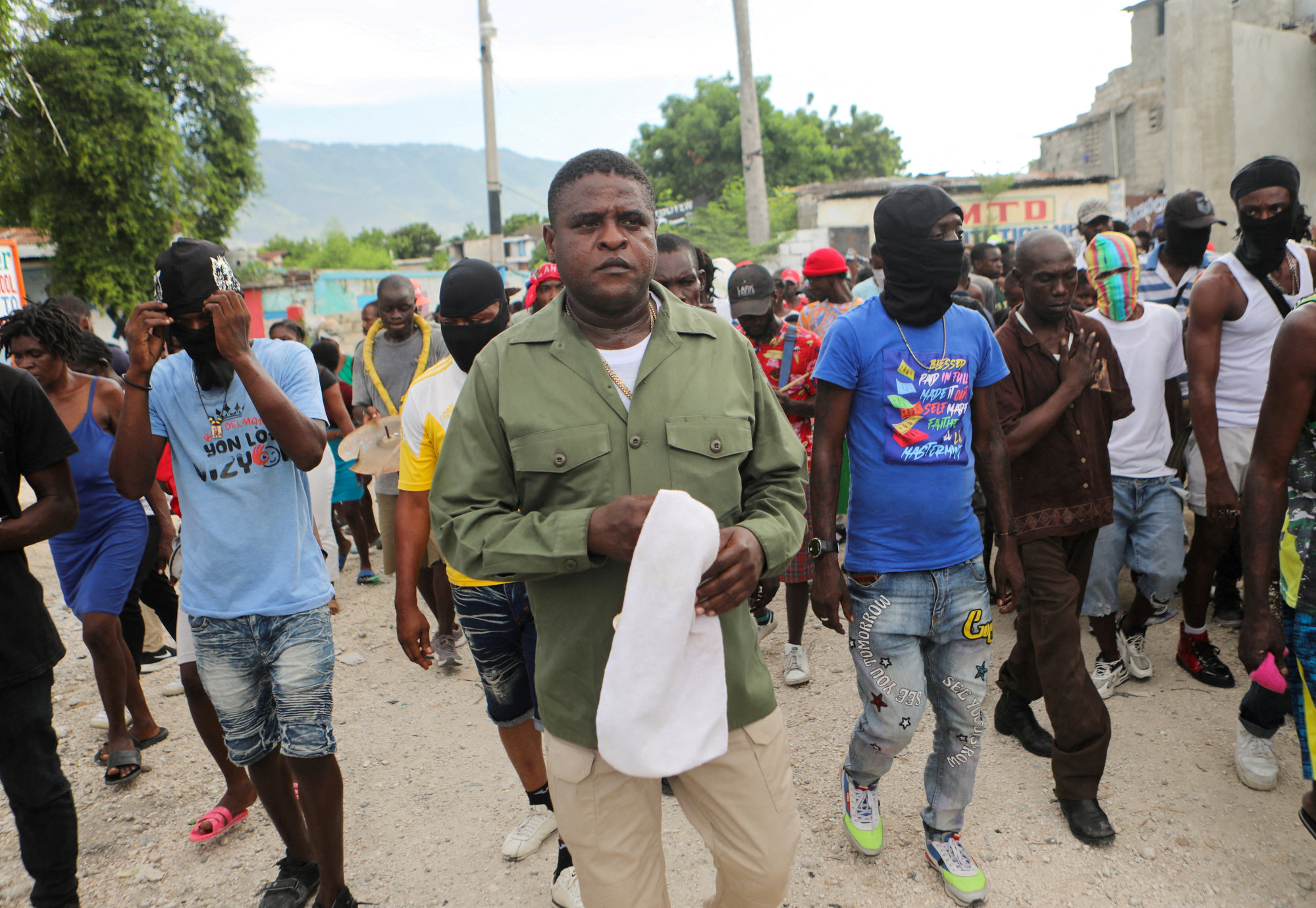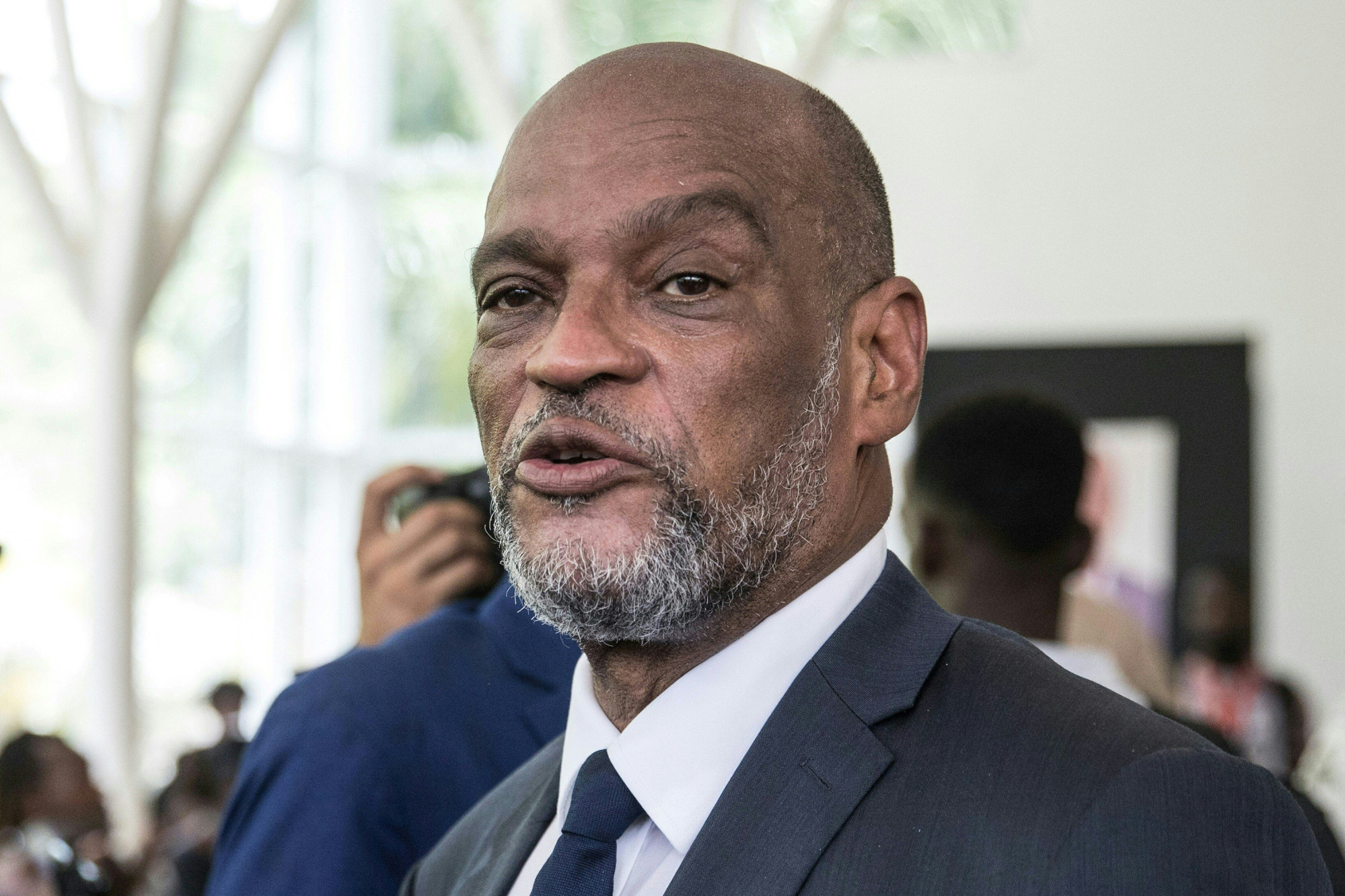It is the biggest attack on the airport in Haiti’s history.

Last week, the airport was struck briefly by bullets amid continuing gang attacks, but gangs did not enter the airport nor seize control of it.
Monday’s attack took place just hours after authorities in Haiti ordered a nighttime curfew following violence in which armed gang members overran the two biggest prisons and freed thousands of inmates over the weekend.
A 72-hour state of emergency began on Sunday night. The government said it would try to track down the escaped inmates, including from a prison where the vast majority were in pre-trial detention, with some accused of murder, kidnappings and other crimes.
“The police were ordered to use all legal means at their disposal to enforce the curfew and apprehend all offenders,” said a statement from Finance Minister Patrick Boivert, the acting prime minister.
Gangs already were estimated to control up to 80 per cent of Port-au-Prince, the capital. They are increasingly coordinating their actions and choosing once unthinkable targets such as the Central Bank.
Prime Minister Ariel Henry travelled to Kenya last week to try to salvage support for a United Nations-backed security force to help stabilise Haiti in its conflict with the increasingly powerful crime groups.
Haiti declares emergency after weekend jailbreak, explosion of violence
Haiti declares emergency after weekend jailbreak, explosion of violence
Haiti’s National Police has roughly 9,000 officers to provide security for more than 11 million people, according to the UN. They are routinely overwhelmed and outgunned.
The deadly weekend marked a new low in Haiti’s downward spiral of violence. At least nine people had been killed since Thursday – four of them police officers – as gangs stepped up coordinated attacks on state institutions in Port-au-Prince, including the international airport and national football stadium.
But the attack on the National Penitentiary late on Saturday shocked Haitians who are accustomed to living under the constant threat of violence.
Almost all of the estimated 4,000 inmates escaped. Three bodies with gunshot wounds lay at the prison entrance on Sunday.

Among the few dozen people who chose to stay in prison are 18 former Colombian soldiers accused of working as mercenaries in the July 2021 assassination of Haitian President Jovenel Moise.
Colombia’s foreign ministry has called on Haiti to provide “special protection” for the men.
A second Port-au-Prince prison containing around 1,400 inmates also was overrun.
The surge in attacks follows violent protests that turned deadlier in recent days as the prime minister went to Kenya seeking to move ahead on the proposed UN-backed security mission to be led by that East African country.
Henry took over as prime minister following Moise’s assassination and has postponed plans to hold parliamentary and presidential elections, which have not happened in almost a decade.

Jimmy Cherizier, a former elite police officer known as Barbecue who now runs a gang federation, has claimed responsibility for the surge in attacks. He said the goal is to capture Haiti’s police chief and government ministers and prevent Henry’s return.
The prime minister, a neurosurgeon who is not elected, has shrugged off calls from gang leaders and protesters for him to resign and did not comment when asked if he felt it was safe to come home, citing the insecurity.
A spokesman for the US State Department said on Monday he believed Henry was returning to Haiti.
Haiti judge charges widow, ex-PM over president’s 2021 assassination
Haiti judge charges widow, ex-PM over president’s 2021 assassination
Haiti’s neighbours on Monday began shoring up their defences and recalling embassy staff.
The Dominican Republic, which shares the island of Hispaniola with Haiti and last year deported tens of thousands of Haitians back across the border, said its defence minister was touring the border to supervise progress on a border fence and the “operational readiness of the military”.
The United States urged its citizens to leave Haiti “as soon as possible”.
Dominican President Luis Abinader did not answer when asked by reporters if he would allow Henry to travel back to Haiti via the land border. He added he would not allow refugee camps for Haitians in the Dominican Republic.
The neighbouring Bahamas said it had called embassy staff back to New Providence, leaving just its charge d’affaires and two security attaches, while Mexico said its nationals should limit themselves to essential transit and stock up on water, fuel and non-perishables.

The International Organization for Migration said in just three days last week around 15,000 people are estimated to have fled gunfire in the capital, many of them from makeshift camps to which they had already been displaced.
The UN estimated early this year some 300,000 had been forced to abandon their homes, fleeing indiscriminate killings, routine sexual violence, kidnappings and lootings.
Gunfire paralyses Haiti as gang boss seeks to capture police chief, ministers
Gunfire paralyses Haiti as gang boss seeks to capture police chief, ministers
The UN last October ratified a plan to send in an international force, based on voluntary contributions from member states, to help Haitian police restore security – a year after it had been requested by Henry.
However, a date for deployment has yet to be set. As of the end of February, the UN said five nations had formally pledged troops – The Bahamas, Bangladesh, Barbados, Benin and Chad – and less than US$11 million was deposited in its fund.
The largest public pledges for personnel come from Benin, which offered 1,500 people, according to the UN, and Kenya, which late last week sealed a deal with Henry to lead the mission with some 1,000 police officers, after overcoming some legal setbacks.
Haiti’s national police has meanwhile shed staff, as poorly resourced officers face deadly clashes with gangs armed with assault weapons, believed to be largely trafficked from the United States.
Additional reporting by Reuters

